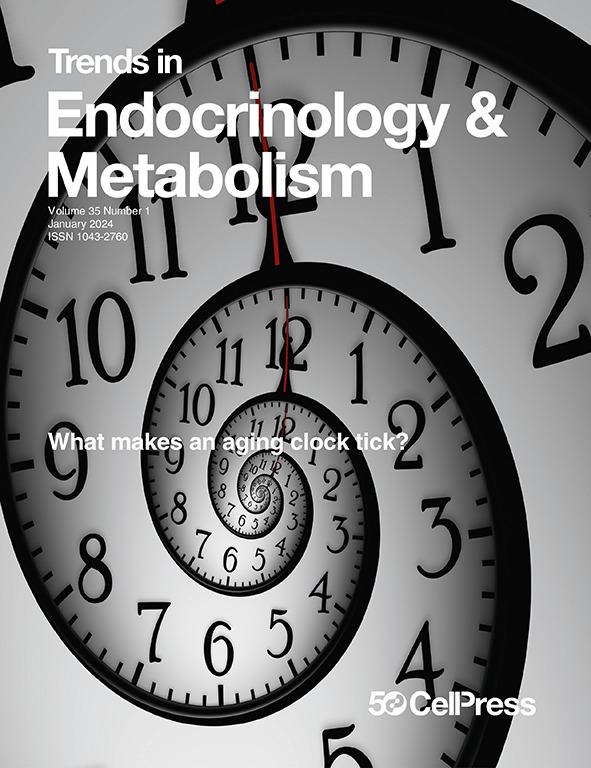利用 "类器官村 "实现细胞型与表型的关联。
IF 11.4
1区 医学
Q1 ENDOCRINOLOGY & METABOLISM
Trends in Endocrinology and Metabolism
Pub Date : 2024-06-01
Epub Date: 2024-04-03
DOI:10.1016/j.tem.2024.03.001
引用次数: 0
摘要
大规模表型技术使用大规模镶嵌的供体衍生细胞和器官组织,可在细胞类型特异性调控背景下提供细胞型-表型关联的丰富见解。这种新兴方法将有助于发现生物标志物,为遗传-表观遗传相互作用提供信息,并确定个性化治疗靶点,为针对高度异质性代谢性疾病的精准医疗带来希望。本文章由计算机程序翻译,如有差异,请以英文原文为准。
Cellotype-phenotype associations using 'organoid villages'.
En masse phenotyping technology, using massively mosaic donor-derived cells and organoids, can offer enriched insights for cellotype-phenotype association in a cell-type-specific regulatory context. This emerging approach will help to discover biomarkers, inform genetic-epigenetic interactions and identify personalized therapeutic targets, offering hope for precision medicine against highly heterogeneous metabolic diseases.
求助全文
通过发布文献求助,成功后即可免费获取论文全文。
去求助
来源期刊

Trends in Endocrinology and Metabolism
医学-内分泌学与代谢
CiteScore
20.10
自引率
0.00%
发文量
98
审稿时长
82 days
期刊介绍:
Trends in Endocrinology and Metabolism (TEM) stands as a premier Reviews journal in the realms of metabolism and endocrinology. Our commitment is reflected in the publication of refined, concise, and highly impactful articles that delve into cutting-edge topics, encompassing basic, translational, and clinical aspects. From state-of-the-art treatments for endocrine diseases to groundbreaking developments in molecular biology, TEM provides comprehensive coverage.
Explore recent advancements in diabetes, endocrine diseases, obesity, neuroendocrinology, immunometabolism, molecular and cellular biology, and a myriad of other areas through our journal.
TEM serves as an invaluable resource for researchers, clinicians, lecturers, teachers, and students. Each monthly issue is anchored by Reviews and Opinion articles, with Reviews meticulously chronicling recent and significant developments, often contributed by leading researchers in specific fields. Opinion articles foster debate and hypotheses. Our shorter pieces include Science & Society, shedding light on issues at the intersection of science, society, and policy; Spotlights, which focus on exciting recent developments in the literature, and single-point hypotheses as Forum articles. We wholeheartedly welcome and encourage responses to previously published TEM content in the form of Letters.
 求助内容:
求助内容: 应助结果提醒方式:
应助结果提醒方式:


